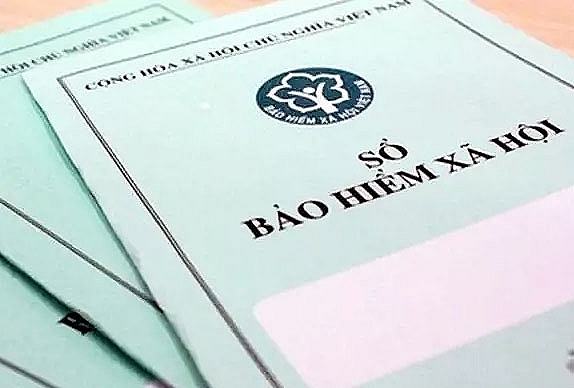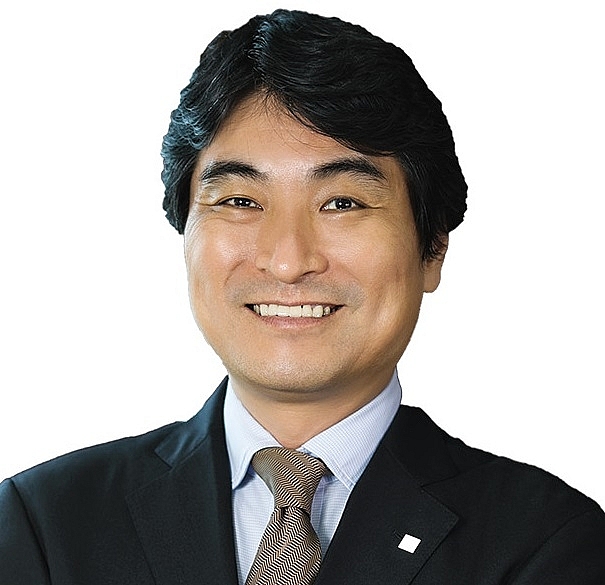Social insurance in cross-hairs
 |
| Social insurance in cross-hairs, illustration photo |
Mac Van Tien, Director, Ministry of Labour, Invalids, and Social Affairs’ National Institute for Vocational Education
 |
Applying compulsory social insurance on foreign employees is such a new policy for Vietnam. Currently, compulsory social insurance on local employees is very difficult to administer, with 30 per cent of the total workforce contributing to the policy, so carrying out a similar policy on foreign employees will be much more difficult because Vietnamese supervision on foreign employees has not been tightened.
Currently, with a huge number of foreign workers in Vietnam, supervision of them in industrial zones, in companies hiring workers from their countries’ headquarters or from other countries is quite hard for the local government. As a result, despite their obligations to the decree in Vietnam, I consider that the number of foreign workers contributing to the compulsory social insurance will be much smaller than the total number of foreign employees in Vietnam.
Compulsory social insurance on foreign employees is a good policy because it helps to protect foreign employees from hitting unexpected risks in Vietnam, but much more importantly, we have to administer foreign workers well by catching the job trends which lure them to come to Vietnam. Once we hold the detailed information on their jobs, administrating them will be easier. Regarding the efficiency of the decree, this is the policy of the coming years, so we need to wait at least five years to acknowledge its efficiency.
Pham Thi Hoai Linh, Personnel manager of Navigos Group
 |
Navigos has been prepared to adapt to the decree on compulsory social insurance for foreign employees since it was a draft several years ago. In fact, the firm pays a significant amount of money – 3 per cent – for foreign employees’ health insurance and severance packages as they leave their jobs.
Thus, the additional 0.5 per cent rate into the occupational accidents and hazards funds, our total insurance payments after foreign employees will not change much. As a result, the decree will not impact Navigos’ operations, and we do not see the need to change our human resources strategy.
Navigos offers equal job opportunities for local and foreign employees, irrespective of the new decree.
According to our research, a significant number of positions are difficult to fill with local employees as they do not meet the employers’ recruitment, which makes the recruitment of foreign employees an understandable necessity.
When it comes to positions suitable for local employees, we always give them priority.
Tamas Bay Nguyen, Foreign language consultant
 |
While an 8 per cent charge is somewhat of a burden, I can understand the sentiment behind the charge.
It has been essential to attract foreign experts to Vietnam to bring in key know-how and expertise. However, the Vietnamese labour force has been developing at a steady pace, and while there are still positions for which foreign experts are better suited, in many areas Vietnamese experts are ready to take the stage and replace their foreign mentors.
In this sense, it is understandable that the Vietnamese government is evening out employment conditions.
On the other hand, I find it a drawback that the move affects foreign workers universally, even at positions which require an actual foreigner and can hardly be filled by Vietnamese personnel. The Vietnamese government needs to tread a fine line in attracting foreign experts and opening more opportunities for domestic personnel – although I have concerns that the initiative may be premature, especially in certain technology-intensive areas.
Mikio Masawaki, General director, Sapporo Vietnam
 |
According to Decree 143, we understand that foreign workers working in Vietnam in the form of internal staff transfer are not subject to this application. However, we still do not know what the specific definition of internal transfer is. In particular, what type of documents that the company and workers need to provide to prove that it is an internal transfer? In addition, there should be general guidelines for all areas, avoiding the situation where each agency in each province understands and sets out different regulations.
At Sapporo Vietnam, we have a number of experienced Japanese professionals who are transferred to Vietnam by Sapporo Group to be in charge of the company’s activities such as business management, production management, business strategy and sales. Our human resources policy is to promote the empowerment of our Vietnamese staff, but before that we need to train our Vietnamese staff with a variety of professional skills and soft skills. In addition to external training, within our company, foreign experts play an extremely important role where they can pass on their experience and skills to the young employees in Vietnam.
In terms of overall economy, we consider that the new regulation could be a barrier for enterprises, not just foreign-invested enterprises but also Vietnamese enterprises, to approach high-level professionals of many fields, especially in fields where Vietnam’s human resources are still lacking in quantity and quality.
In the long run, it would be ideal if businesses could find the human resources in Vietnam that meet the requirements of quantity and quality. However, at this stage, it is our observation that Vietnam’s labour market needs to be invested methodically in the long run so that it can create human resources to meet the demand of enterprises.
Brittany Chong, Global Mobility Services partner, PwC Vietnam
 |
Clearly, compulsory contribution of social insurance for foreign employees will have an impact on companies’ employment costs. It may not be significant now due to its stepped application, but it will be significant when the 8 per cent employees’ and 17.5 per cent employer’s contribution for retirement and death funds takes effect from January 2022.
When the contributions from employees start in January 2022, employees may be concerned about the additional deduction of their monthly salary for the social insurance scheme. Still, they should note that the statutory employer contributions do not constitute a taxable benefit to the employee, and the employee contributions are deductible for personal income tax purposes.
Hopefully, this tax treatment will remain when the employee’s contributions take effect in 2022. Decree 143 clarifies some uncertainties and made the requirement of foreigners subject to a mandatory social insurance scheme clearer. However, there are still areas where additional guidance should be provided.
For instance, a clearer withdrawal policy of the one-off payment on the contributed amount from the social insurance agency and its claim procedures should be provided. Questions such as whether the claim amount will be returned in VND to the foreigners should be addressed.
If so, it could be problematic for the foreigners as they need to continue to maintain their VND account for this purpose before the amount is received. Questions on exemption policy should be addressed. In general, citizens of countries with bilateral agreements in place may be exempted/partially exempted if they can prove they are liable for the contributions in their home country.
Godfrey Andrea, KPMG’s Executive Director, Tax and Legal
 |
Where the expatriates have a labour contract in Vietnam for a term of at least 1 year and a work permit, practicing licence or practicing certificate, the 3.5 per cent contribution by the employer is capped at a salary of VND 27.8 million ($1,208), so the total amount of contributions would be capped at VND11,676 000, approximately $500 per year, or VND 973,000 ($41.70) per month. Therefore, the additional marginal cost of employment for expatriates is likely to increase less than 3.5 per cent of the current salary and additional fixed payments. Where the expatriates have no local labour contract, and instead come to Vietnam as secondees, or where expatriates have reached the Vietnamese retirement age there is no impact.
However, the impact of cost increase, due to the acquisition of locally unavailable skills, although only at 3.5 per cent, will lead to an increase of products/services costs provided. In the local quest to go global this will make VN products less attractive in the global market. Would the local firm start thinking of setting up a spin-off somewhere else (like Singapore) to have globally acquired people assets working there to support local operation? If this happened, it would harm the economy as a whole.
Local workers are already subject to social insurance contributions at the full rates of 17.5 per cent from the employer-side, and 8 per cent from the employee-side, so replacing foreign workers with local ones would not reduce the amount of social insurance contributions payable. Moreover, social insurance contributions are capped at a salary of VND 27.8 million ($1,208), so even if foreign workers demand higher salaries this would be unlikely to affect the amount of social insurance contributions payable per worker unless the local worker would be willing to accept a salary of less than VND 27.8 million ($1,208). Nonetheless, as of January 1, 2022, employees will be required to contribute 8 per cent of their salaries, capped at 20 times the general minimum wage (which is currently VND 27.8 million, but will likely increase by 2022), so this will be a significant cost. At the current capped rate, this would amount to approximately VND 26,688,000 ($1,160). Many foreign workers may demand their potential employers bear this cost as well as the employer-side contribution in order to accept employment in Vietnam. Therefore, if and when local expertise are readily available, local firms may give their preference to local hires. However, as the country is developing, we would still see the need for imported expertise. Furthermore, globalization will see more movement of people assets in the market and the replacement of local for foreign might not always work.
To adapt to this new decree, companies may instead consider to bring their foreign employees under secondment arrangements instead of placing foreign employees under local contracts or structure their remuneration packages differently to potentially reduce compliance costs.
What the stars mean:
★ Poor ★ ★ Promising ★★★ Good ★★★★ Very good ★★★★★ Exceptional
 Tag:
Tag:
Related Contents
Latest News
More News
- Congratulations from VFF Central Committee's int’l partners to 14th National Party Congress (January 25, 2026 | 09:46)
- List of newly-elected members of 14th Political Bureau announced (January 23, 2026 | 16:27)
- 14th Party Central Committee unanimously elects To Lam as General Secretary (January 23, 2026 | 16:22)
- List of members of 14th Party Central Committee announced (January 23, 2026 | 09:12)
- Highlights of fourth working day of 14th National Party Congress (January 23, 2026 | 09:06)
- Press provides timely, accurate coverage of 14th National Party Congress (January 22, 2026 | 09:49)
- Press release on second working day of 14th National Party Congress (January 22, 2026 | 09:19)
- Minister sets out key directions to promote intrinsic strength of Vietnamese culture (January 22, 2026 | 09:16)
- 14th National Party Congress: Renewed momentum for OVs to contribute to homeland (January 21, 2026 | 09:49)
- Party Congress building momentum for a new era of national growth (January 20, 2026 | 15:00)






















 Mobile Version
Mobile Version